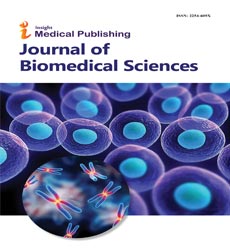Abstract
Enhancing diabetic care by the implantation of medication therapy management (MTM) in ambulatory health services (AHS) in Abu Dhabi
Aim: To clarify the role of the pharmacist intervention by practicing MTM as pharmaceutical care in uncontrolled adult’s diabetic patients based on the improvement of HBA1c and other patients/outcomes.
Introduction: Diabetes is a chronic progressive disease requiring continuous medical care. HbA1c measures blood glucose control in is well accepted as a measuring performance allows the organization to assess how well care is currently provided and address the points of improvement.
Mythology: Mythology: During the 6 months, starting from (1/3/2018 till 31/8/2018) we establish MTM for Diabetic Mellitus patients, by follow-up the patients for minimum 2 clinical visits:
• We identify uncontrolled patients HbA1c > 7 (found 39 patients)
• We reassess the treatment plan and provide the proper required intervention in timely manner
• We assess patient’s compliance to their medication and provide the counseling
• We assess patient’s Self-Monitoring Blood Glucose and we provide the education
Results: The types of pharmacist’s intervention in 39 totals are:
• Improve medication adherence 21 cases (54%)
• Initiate new drug therapy 14 cases (36%)
• Institute a monitoring plan 4 (10%)
Considering the target of HbA1c for controlled diabetic patients is (7%):
• The patients achieved the target are 16 patients (41%)
• The patients not achieved the target (HbA1c > 7%) are 21 patients (54%)
• No data for 2 patients (5%)
Improving HbA1c towards the target:
• The patients improved 24 patients (62%)
• The patients not improved 2 patients (5%)
• No data (only one reading for HbA1c) 13 patients (33%)
The mean of HbA1c before and after MTM implantation:
• The average of HbA1c before MTM implantation 8.88%
• The average of HbA1c after MTM implantation 7.26
The patient with self-monitoring blood glucose (SMBG):
• Compliant with SMBG 17 patients (44%)
• Non-Compliant with SMBG 22 patients (55%).
Conclusion: With markedly improved the patients outcomes, by measuring HBA1c, achieve the target and Self-Monitoring
Blood Glucose (SMBG), before MTM and after, still we have some challenges and some barriers. An action
plan will be established to bridge all that challenges and the barriers to improve the overall health and the
quality of life for our diabetic’s patients.
Biography:
Royida Al Marastani is a Senior Pharmacist with more than thirty years of experience in the UAE in Abu Dhabi in Primary Health Centers (PHC), Urgent Care Center (UCC) and Ambulatory Health Services (AHS) and MSc in Clinical Pharmacy UK. She is a lecturer from 2003 in Ministry of Health (MOH), in CPE/CME pharmacist’s program from 2011 in SEHA/ Ambulatory Healthcare Services (AHS). Her roles include conducting research, conference abstracts, invited presentations in the national & international conferences, focusing on pharmaceutical care based on safety and efficacy of the medications.
Author(s):
Royida MHD Said Al Marastani
Abstract | PDF
Share this

Abstracted/Indexed in
- Google Scholar
- Genamics JournalSeek
- China National Knowledge Infrastructure (CNKI)
- Directory of Research Journal Indexing (DRJI)
- WorldCat
- Secret Search Engine Labs
Open Access Journals
- Aquaculture & Veterinary Science
- Chemistry & Chemical Sciences
- Clinical Sciences
- Engineering
- General Science
- Genetics & Molecular Biology
- Health Care & Nursing
- Immunology & Microbiology
- Materials Science
- Mathematics & Physics
- Medical Sciences
- Neurology & Psychiatry
- Oncology & Cancer Science
- Pharmaceutical Sciences

